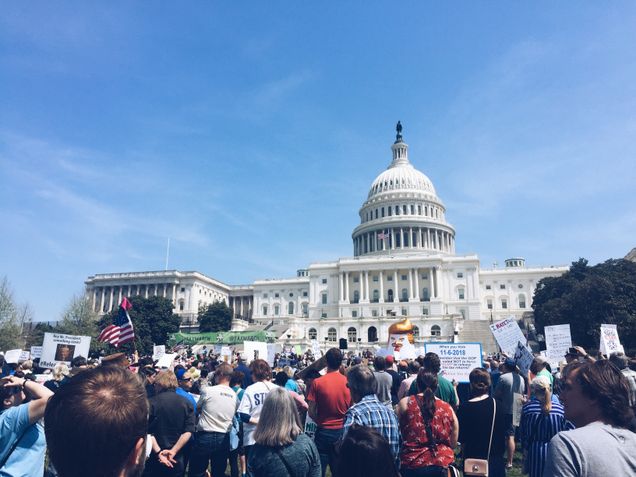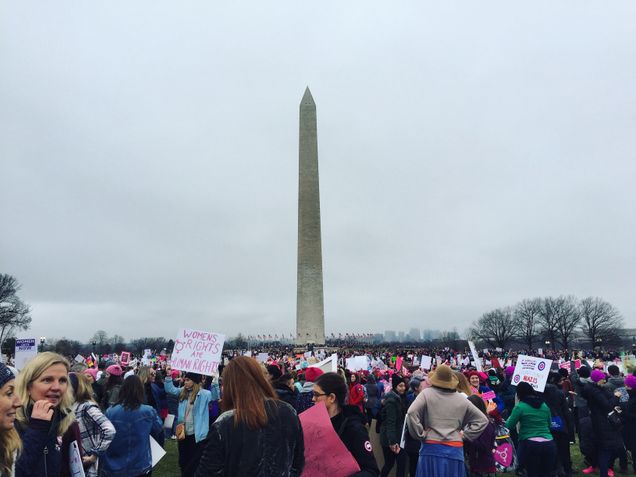Reevaluation
by Emily Williams (Spring 2017)
When I applied for the BUDC program in September, I had a very different semester in mind. I knew that it would impact my career in a great way given that I planned to move after the election, and after my time on the Clinton campaign ended. I anticipated a semester where Hillary would be president, and Democrats held Congress. All of that changed on November 8, and I had to reevaluate.

Photo of Capitol: the pre-march rally at the Tax March on Washington, featuring Rep. Maxine Waters
I almost chose not to do the program, thinking that going back to Boston and tuning out the Trump administration from afar would be easiest. I am so, so happy I chose to do the opposite. Following the election, I feared moving to DC would feel like moving into enemy territory. What I discovered was completely the opposite. DC as a whole is more tuned in to what is happening in the world, obviously, but in a unique way. People are not only aware of what’s going on, but they are more active than any community I have ever lived in when it comes to taking a stand for their beliefs. The company I chose to work at has the slogan “do big things”, and I did not truly understand that until I began to immerse myself in the DC culture.
My internship, and later my personal exploration of the city, introduced me to the Resistance in a very real way. The overwhelming presence of this movement allowed me to move beyond the perception of DC as just the government, and to fight for issues I cared about. The city gained a community feel on January 21st as its residents came together against the Trump administration, and that feeling has not dissipated. I had never been on the front lines of any protest, preferring instead to work behind the scenes. Starting with the women’s march, and the inspiration I felt as people around the city relentlessly advocated for their beliefs, this gradually changed. As the guys of Pod Save America joked, protest is the new brunch. My weeks were spent working with progressive groups and candidates, and I began to spend parts of my weekends at rallies or protests. This became the side of DC I most associated with, the Resistance that rejected Donald Trump as its leader and chose to take a stand to defend its values. DC is in the unique position of being surrounded by the administration, and having the skills, passion, and access to confront it head-on.

Photo of Monument: the Women’s March on Washington on January 21, 2017
Being in DC allowed me to become an active part of the political movement I admired in a way I had not before. Everything I had watched on the news, and hoped would come out of the election, came to life around me in a very real way. For the DC community, what happens in the federal government is personal. I have always struggled with apathetic communities in other cities I’ve lived in, but in DC the people are the opposite of apathetic. The environment of activism can be found throughout the city, on issues ranging from local zoning laws to the Muslim ban and everything in between, and in street art, “all are welcome” yard signs, or protests. Everywhere I have gone, there are signs of the Resistance, and of the city fighting to prove that whatever Trump is, he is not DC. In the aftermath of an election loss that devastated my belief in civic engagement and progressive values, DC has served as a constant reminder that there is still a fight worth fighting.
Emily is a junior studying political science and interning with a Democratic campaign consulting firm.

